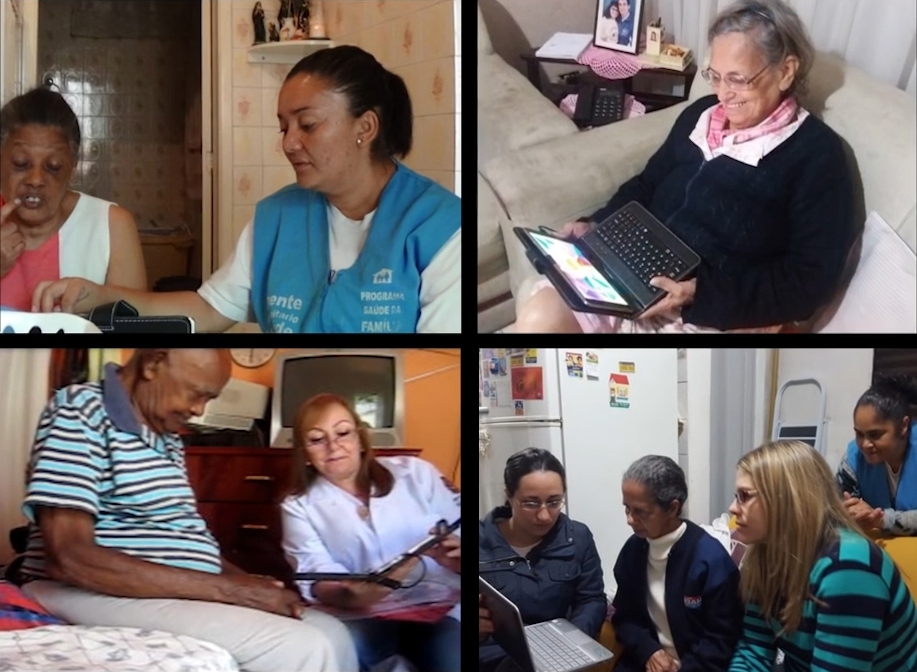


Brazilian and British scientists are testing a software tool that could lower the cost of providing care to elderly patients with depression (image: Agência FAPESP)
Published on 05/13/2021
By André Julião | Agência FAPESP – Some 35,000 older adults who live in Metropolitan São Paulo, Brazil, will be interviewed starting in April as part of a cost-effectiveness analysis of a protocol to diagnose and treat depression in individuals over sixty years old.
The study is being conducted by researchers affiliated with the University of São Paulo’s Medical School (FM-USP) and King’s College London in the United Kingdom. They are funded by FAPESP and the UK’s Medical Research Council.
“We’re about to embark on the randomized clinical trial. There is a very long recruitment stage because we need more than 1,400 participants. Bearing in mind that the prevalence of depression is approximately 10% of the population, we’ll have to interview at least ten times the number of participants we need,” said Ricardo Araya, a professor at King’s College London and co-principal investigator for the study.
The study was presented during FAPESP Week London, which took place in the UK capital on February 11-12, 2019.
The principal investigator in Brazil is Marcia Scazufca, a professor at FM-USP. Scazufca and Araya previously ran another joint project that served as a basis for the new study.
In the previous study, the group developed an experimental program of care for older adults with depression, and that program’s cost-effectiveness will now be tested. In a five-month intervention involving home visits to previously enrolled patients, 87% displayed a significant improvement in symptoms, and some even recovered completely.
The project also included training for community health workers and the development of a tablet-based app to help these professionals interact with the patients.
“We concluded that the technological platform worked and was at least 11% effective, comparing those who used it with those who did not. That’s significant. If 10% of the population suffer from depression, some 12 million Brazilians could potentially benefit from the platform,” Araya told Agência FAPESP.
The app is called ProActive and was designed at Hospital das Clínicas (HC), the general hospital run by the University of São Paulo’s Medical School (FM-USP), for use in the Family Health Strategy implemented by the Brazilian national health system (Sistema Único de Saúde, SUS). The program deploys teams composed of a general practitioner, a nurse, nursing assistants and community health workers who are responsible for family healthcare in specific areas covered by the service.
The project trained community health workers to act as front-line deliverers of care to older people in their homes. The app uses simple psycho-education and behavioral activation techniques considered effective at treating depression. One such technique consists of showing the patient examples of how different kinds of behavior in response to symptoms of depression can help or hinder their recovery (read more at: agencia.fapesp.br/24705).
The randomized clinical trial will serve as a basis for assessing the platform’s effectiveness in a larger population and its cost feasibility for the SUS.
“Given the lack of professionals who are properly trained and qualified to provide care for the elderly, if this tool is shown to be viable, it will be positive for the Brazilian population,” Araya said.
For FAPESP Week London news and videos, go to: www.fapesp.br/week2019/london.
Source: https://agencia.fapesp.br/30083